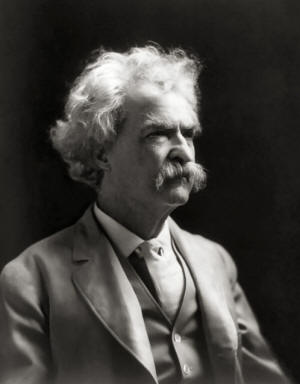|
6 Creepy Cases of People Who Predicted
Their Own Deaths
 Send a link to a friend
Send a link to a friend
 [August 02, 2016]
By: Diana Vilibert (THE LINEUP) – As
the saying goes, nothing in life is certain, except for death and taxes.
And while the source of the quote itself is uncertain—it’s been
attributed to everyone from Benjamin Franklin to Edward Ward—it seems
some really took it and ran with it. In fact, death was so certain for
some people throughout history, that they were actually able to predict
the exact date of their own demises. Coincidences? Perhaps, but that
doesn’t make them any less freaky. [August 02, 2016]
By: Diana Vilibert (THE LINEUP) – As
the saying goes, nothing in life is certain, except for death and taxes.
And while the source of the quote itself is uncertain—it’s been
attributed to everyone from Benjamin Franklin to Edward Ward—it seems
some really took it and ran with it. In fact, death was so certain for
some people throughout history, that they were actually able to predict
the exact date of their own demises. Coincidences? Perhaps, but that
doesn’t make them any less freaky.
1. Arnold Schoenberg
He was a talented painter, a gifted composer, and a sufferer of
triskaidekaphobia, a fear of the number 13. Arnold Schoenberg was born
on September 13, 1874, and spent his life trying to avoid the number. He
dreaded birthdays when the numbers of his new age would add up to 13.
When he wrote his opera, Moses und Aron, he intentionally misspelled
Aaron’s name to avoid having the letters add up to 13. And when July
13—a Friday—came around in 1951 when he was 76 (7+6=13), Schoenberg felt
so sick and anxious about impending doom that he decided to stay in bed
all day. At 11:45pm, his wife got a call from the doctor. “Arnold's
throat rattled twice, his heart gave a powerful beat and that was the
end,” she wrote in a letter to her sister-in-law.

2. Mark Twain
Most know him for his way with words, but it seems Mark Twain was a bit
of a fortuneteller, too. In 1909, he noted that Halley’s Comet had last
been visible from Earth the same year he was born, saying “I came in
with Halley's Comet in 1835. It is coming again next year, and I expect
to go out with it. It will be the greatest disappointment of my life if
I don't go out with Halley's Comet. The Almighty has said, no doubt:
"Now here are these two unaccountable freaks; they came in together,
they must go out together.” On April 20, 1910, Halley’s Comet made its
next appearance... and a day later, Mark Twain made his last. He died of
a heart attack on April 21.
3. Abraham de Moivre
When most people oversleep by 15 minutes, they blame the snooze button.
But when mathematician Abraham de Moivre started oversleeping by 15
minutes every day, he made a prediction: that when those 15 minutes
added up to 24 hours, he would die. Sure enough, on November 27, 1754,
he did. His official cause of death was reported as somnolence, aka
excessive sleepiness. Bet you’ll think twice about oversleeping now.
4. Abraham Lincoln
There’s some speculation as to how accurate the story of Abraham
Lincoln’s death prediction is, but according to his former law partner,
friend, and bodyguard Ward Hill Lamon, Lincoln saw it in a dream. The
former president was apparently pretty into dreams and their meanings
already, according to letters to his wife and stories from members of
his cabinet. A few days before his assassination, Lamon says Lincoln
told him of a dream he had: He walked into the East Room of the White
House and saw a corpse surrounded by soldiers and mourners. When he
asked who had died, a soldier responded, “The president. He was killed
by an assassin.”
[to top of second column] |

Mark Twain. Photo: Wikimedia Commons

5. Pete Maravich
In 1974, NBA player Peter “Pistol Pete” Maravich told a reporter, “I
don’t want to play 10 years in the NBA and then die of a heart
attack at 40.” He did end up playing pro basketball for 10 years:
and sadly, on January 5, 1988, he died of heart failure at the age
of 40 at a pickup game in a church gym in Pasadena. It was later
discovered that Maravich had an undiagnosed heart condition.
6. Mikey Welsh
“Dreamt I died in Chicago the weekend after the next (heart attack
in my sleep). I need to write my will today.” That was former Weezer
bassist Mikey Welsh’s tweet on September 26, 2011. On Saturday,
October 8, he was found unconscious in his Chicago hotel room.
Though authorities suspected that prescription narcotics and heroin
played a role in his death, Welsh’s toxicology report came back
inconclusive. Weezer took the stage at Chicago’s Riot Fest show the
next day, making the statement, “to play the show and play it well
tonight is to honor him and his memory. We have a feeling he will be
watching."
This story was originally featured on The-Line-Up.com. The Lineup is
the premier digital destination for fans of true crime, horror, the
mysterious, and the paranormal.
[© 2016 Thomson Reuters. All rights
reserved.]
Copyright 2016 Reuters. All rights reserved. This material may not be published,
broadcast, rewritten or redistributed.

 |